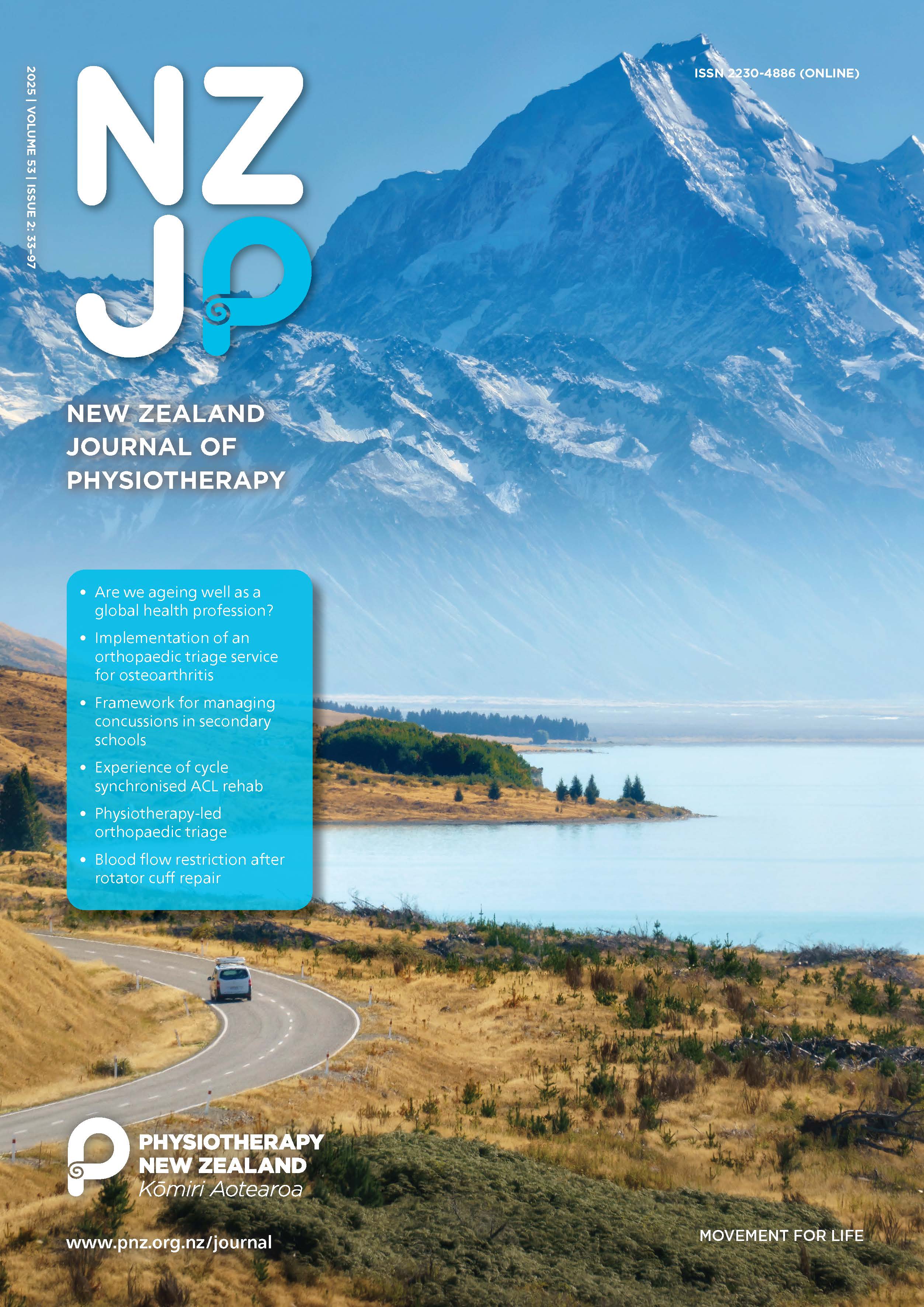Expectations and understanding of patients attending advanced physiotherapy-led orthopaedic triage clinics in primary care: A scoping review
DOI:
https://doi.org/10.15619/nzjp.v53i2.464Keywords:
Orthopaedics, Physiotherapy-led, Te Pae Māhutonga, TriageAbstract
Physiotherapy-led orthopaedic triage has been shown to reduce waiting times for specialist assessments. These triage models are now being adopted in Aotearoa New Zealand. To ensure successful implementation, it is important to work in partnership with tangata whenua (the Indigenous people of Aotearoa New Zealand), respecting Te Tiriti o Waitangi (a founding document of Aotearoa New Zealand). This scoping review explored the expectations and understanding of patients attending physiotherapy-led orthopaedic triage services. It followed the Arksey and O’Malley (2005) framework and is reported in accordance with the PRISMA extension for scoping reviews. Eligibility criteria included English-language articles focusing on adult populations that explored patient understanding, expectations, perceptions, and ideas regarding physiotherapy led orthopaedic triage. Online database searches were conducted via Medline (EBSCO, including CINAHL and SPORTdiscus), Cochrane Library, and SCOPUS. The findings are charted within Te Pae Māhutonga Māori health promotion framework. Patients expect to receive information about pathways, diagnoses, and timeframes earlier in their journey and want easy access to pathways and clinicians. Healthcare users desire patient-centred care, where they and their general practitioner (GP) or other important advocates/whānau (extended family unit) are involved in analysing options and making decisions. This review highlights gaps in the literature regarding the Aotearoa New Zealand and Māori health contexts that require further exploration. As this service delivery model develops in Aotearoa New Zealand, there is a need to ensure services are fit for purpose.


